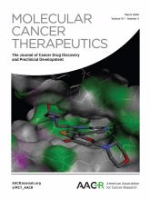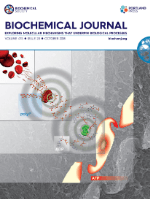
Signal Transduction and Targeted Therapy
Scope & Guideline
Pioneering Discoveries in Genetics and Cancer Therapy
Introduction
Aims and Scopes
- Signal Transduction Mechanisms:
The journal emphasizes research that elucidates the molecular mechanisms of signal transduction pathways, including their roles in cellular processes such as proliferation, differentiation, and apoptosis. - Targeted Therapy Innovations:
It highlights novel approaches in targeted therapies, particularly in oncology, showcasing advancements in drug development that specifically target molecular pathways involved in cancer progression. - Therapeutic Applications in Infectious Diseases:
The journal covers therapeutic strategies against infectious diseases, particularly those related to viral infections like SARS-CoV-2, exploring immunological responses and vaccine development. - Interdisciplinary Research:
Encouraging collaboration across various fields such as molecular biology, immunology, and pharmacology, the journal aims to integrate findings from diverse scientific areas to enhance therapeutic outcomes. - Clinical Translation of Research:
It focuses on the translational aspect of research, emphasizing studies that move from bench to bedside, ensuring that discoveries in signal transduction can lead to effective clinical interventions.
Trending and Emerging
- Immunotherapy and Immune Modulation:
There is an increasing emphasis on immunotherapy, particularly in cancer treatment, with studies exploring novel immune checkpoint inhibitors and strategies to enhance T cell responses. - Targeting the Tumor Microenvironment:
Research is increasingly focused on understanding and targeting the tumor microenvironment, with studies investigating the role of stromal cells, extracellular matrix, and immune cell interactions in cancer progression. - RNA-Based Therapeutics:
Emerging research on RNA-based therapeutics, including mRNA vaccines and RNA interference technologies, is becoming a significant theme, especially in the context of infectious diseases and cancer. - Epigenetic Modifications in Cancer:
The role of epigenetic modifications in cancer biology is gaining traction, with a focus on how these alterations can be targeted for therapeutic benefit. - Nanotechnology in Drug Delivery:
Innovative approaches utilizing nanotechnology for targeted drug delivery and enhanced therapeutic efficacy are becoming increasingly prominent in the journal's publications.
Declining or Waning
- Traditional Cancer Therapies:
There is a noticeable decline in publications focusing solely on traditional chemotherapy and radiotherapy approaches, as the field shifts towards more personalized and targeted treatments. - Basic Mechanistic Studies:
Studies that purely explore basic mechanistic insights without direct therapeutic implications are becoming less common, as there is a stronger emphasis on translational research that connects basic science to clinical applications. - Single-Agent Therapies:
Research focusing on single-agent therapies is waning in favor of combination therapies that leverage multiple mechanisms of action to enhance efficacy and overcome resistance. - Epidemiological Studies:
The prevalence of epidemiological studies within the journal has decreased, likely as the focus shifts more towards molecular and mechanistic studies that can directly inform therapeutic strategies.
Similar Journals

CELLULAR SIGNALLING
Exploring the Intricacies of Cell BiologyCELLULAR SIGNALLING, published by Elsevier Science Inc, is a premier journal within the realm of Cell Biology, boasting an impressive Q2 category ranking as of 2023. With an ISSN of 0898-6568 and an E-ISSN of 1873-3913, the journal has established itself as a critical platform for advancing the understanding of cellular mechanisms and signal transduction pathways since its inception in 1989. Covering a vast array of topics in Biochemistry, Genetics, and Molecular Biology, it ranks notably at 87 out of 285 in the Scopus list, placing it in the 69th percentile among its peers. The journal serves as an invaluable resource for researchers, professionals, and students seeking high-quality, impactful studies that drive forward the field of cellular biology. While it operates under traditional subscription access, its highlights include rigorous peer-reviewed articles, reviews, and insights that continue to shape current scientific discourse.

Journal of Translational Medicine
Unlocking the Future of Translational Medicine.Journal of Translational Medicine, published by BMC in the United Kingdom, stands at the forefront of biomedical research, bridging the gap between laboratory discoveries and clinical applications. Established in 2003 as an Open Access journal, it has garnered significant recognition, achieving a Q1 quartile ranking in both Biochemistry, Genetics and Molecular Biology and Medicine categories as of 2023. With an impressive Scopus rank of 38 out of 636 in General Medicine and 33 out of 221 in General Biochemistry, Genetics and Molecular Biology, the journal is committed to disseminating high-quality, peer-reviewed research that impacts healthcare and informs clinical practices. By facilitating free access to groundbreaking studies, the Journal of Translational Medicine aims to enhance collaboration among researchers, professionals, and students in the scientific community, fostering advancements in translational research well into the future.

International Journal of Molecular and Cellular Medicine
Unveiling New Horizons in Cellular and Molecular BiologyInternational Journal of Molecular and Cellular Medicine, published by the CELLULAR & MOLECULAR BIOLOGY RESEARCH CENTER in Iran, is a leading platform dedicated to advancing research in various domains of molecular and cellular sciences. With an ISSN of 2251-9637 and E-ISSN 2251-9645, this journal features a rigorous peer-review process that ensures the publication of high-quality, impactful research. Spanning from 2016 to 2024, it is categorized in the third quartile (Q3) in Biochemistry, Cell Biology, Genetics, and Molecular Biology, and second quartile (Q2) in Biotechnology, underlining its significance in the scientific community. Although currently non-open access, it maintains credible visibility through Scopus rankings, reflecting its importance in fields such as Biochemistry, Molecular Medicine, and Genetics, where it holds respectable ranks and percentiles. This journal aims to foster collaboration and knowledge dissemination among researchers, professionals, and students in the pursuit of enhancing understanding and innovation in molecular and cellular medicine.

BIOCHIMICA ET BIOPHYSICA ACTA-MOLECULAR BASIS OF DISEASE
Decoding Disease at the Molecular LevelBIOCHIMICA ET BIOPHYSICA ACTA-MOLECULAR BASIS OF DISEASE, published by Elsevier, is a pivotal journal in the fields of Molecular Biology and Molecular Medicine, recognized for its high impact factor and robust ranking within Scopus categories, holding prestigious quartiles in Q1 for both disciplines as of 2023. With ISSN 0925-4439 and E-ISSN 1879-260X, this journal fosters cutting-edge research from 1990 to 2025, addressing the critical molecular mechanisms underlying human diseases. Its wide-ranging scope includes original research articles, reviews, and advanced theoretical insights, serving as an essential resource for researchers, clinicians, and students alike. The journal is based in the Netherlands, at RADARWEG 29, 1043 NX AMSTERDAM, and while it does not currently offer an open-access option, it continues to maintain a strong presence in the scientific community, enhancing our understanding of molecular processes in health and disease.

Science Immunology
Transforming Research into Therapeutic InnovationsScience Immunology, published by the American Association for the Advancement of Science, is a leading journal in the field of immunology, recognized for its significant impact and rigor in advancing our understanding of immune responses and complex diseases. With an impressive impact factor that places it in the Q1 category of both immunology and allergy, as well as miscellaneous medicine, this journal is ranked #7 and #8 in their respective Scopus categories, reflecting its high-quality research output. Since its inception in 2016, Science Immunology has been at the forefront of interdisciplinary immunological research, fostering crucial insights that link immunology with pressing health challenges. The journal is committed to providing open access to its content, ensuring that groundbreaking findings are accessible to a global audience of researchers, professionals, and students. Its anthology not only addresses fundamental immunological mechanisms but also enhances the dialogue on translational applications and therapeutic interventions, solidifying its position as an essential resource within the scientific community.

PROGRESS IN BIOCHEMISTRY AND BIOPHYSICS
Exploring the Dynamics of Life at the Molecular LevelPROGRESS IN BIOCHEMISTRY AND BIOPHYSICS, published by the Chinese Academy of Sciences, Institute of Biophysics, serves as a vital platform for advancing the field of biochemistry and biophysics. With a legacy dating from 1996 through 2024, this journal has been instrumental in disseminating critical research findings and innovative methodologies that push the boundaries of our understanding of biochemical processes and biophysical phenomena. Though currently unlisted as Open Access, the journal embodies rigorous peer-reviewed scholarship, positioned in the competitive Q4 quartile for both biochemistry and biophysics categories as per the 2023 metrics. It caters to a diverse audience, including researchers, professionals, and students who are keen to explore foundational and emerging concepts within these dynamic fields. By publishing comprehensive studies and reviews, the journal not only highlights progress but also fosters collaboration and dialogue among scholars worldwide, making it an essential resource for anyone invested in biochemical and biophysical research.

FEBS Journal
Elevating Scientific Discourse in BiosciencesFEBS Journal is a prestigious, peer-reviewed publication dedicated to advancing the field of biochemistry, cell biology, and molecular biology. Published by WILEY in the United Kingdom, this journal boasts an impressive impact factor and ranks in the top quartile (Q1) across multiple relevant categories, including Biochemistry, Cell Biology, and Molecular Biology, reflecting its significant contribution to scientific research. With an ISSN of 1742-464X and an E-ISSN of 1742-4658, the FEBS Journal publishes original research and comprehensive reviews that push the boundaries of knowledge and innovation in the biosciences. As a vital resource for researchers, professionals, and students alike, the journal offers Open Access options, ensuring that cutting-edge discoveries are accessible to a broad audience. With a publication history converging from 2005 to the present and a robust emphasis on high-quality scholarly work, the FEBS Journal remains an essential platform for the dissemination of significant findings and advancements in the life sciences.

MOLECULAR CANCER THERAPEUTICS
Elevating the standards of cancer therapeutics.MOLECULAR CANCER THERAPEUTICS, published by the American Association for Cancer Research, is a premier journal dedicated to advancing the field of cancer research and therapy since 2001. With a notable impact factor reflecting its high-quality content, this journal stands out in the Q1 category for both Cancer Research and Oncology as of 2023. Researchers, clinicians, and students interested in innovative treatment strategies and molecular mechanisms can find valuable insights within its pages, bolstered by a rigorous peer-review process and a global perspective on cancer therapeutic developments. Although the journal operates under a subscription model, it provides comprehensive access to cutting-edge studies and reviews that drive forward the understanding of cancer biology and treatment modalities. The journal's impressive Scopus rankings further validate its influence within both oncology and the broader cancer research community, making it an indispensable resource for anyone committed to combating cancer through science.

Life Science Alliance
Catalyzing Breakthroughs in Molecular Biology and Health.Life Science Alliance, published by LIFE SCIENCE ALLIANCE LLC, is a premier open access journal that has been making significant contributions to the fields of Biochemistry, Genetics and Molecular Biology, Ecology, Health, Toxicology and Mutagenesis, and Plant Science since its inception in 2018. With an impressive ranking in Scopus, including Q1 quartile positions and high percentiles in relevant categories, this journal is a vital resource for researchers, professionals, and students alike who seek to advance knowledge and innovation in life sciences. The journal operates on an open access model, ensuring that research findings are freely available to the global scientific community, thereby enhancing the visibility and impact of published work. With a commitment to fostering collaboration and disseminating high-quality research, Life Science Alliance serves as an essential platform for the promotion and exchange of scientific knowledge, aiming to bridge gaps and stimulate discussions across multiple disciplines.

BIOCHEMICAL JOURNAL
Fostering Innovation in Biochemistry and BeyondBIOCHEMICAL JOURNAL, published by Portland Press Ltd, stands as a leading publication in the fields of Biochemistry, Cell Biology, and Molecular Biology, reflecting a commitment to advancing scientific knowledge since its inception in 1945. With a distinguished Q1 ranking across these categories and impressive Scopus rankings, the journal serves as an invaluable resource for researchers, professionals, and students alike, facilitating critical discoveries and innovative research practices. Although not currently offering open access, the journal provides a platform for high-quality peer-reviewed articles, ensuring rigorous standards in the dissemination of biochemical research. Spanning over seven decades and continuing through to 2024, the BIOCHEMICAL JOURNAL fosters an environment where cutting-edge biochemical research thrives, supporting the global scientific community's efforts to address complex biological questions and enhance our understanding of fundamental cellular processes.